Business
Afghanistan: Not Willing to Sign Water Treaty with Anyone

 Pakistan Government aimed to sign an treaty over share water with Afghan Government, amid officials in Ministry of Energy and Water insisted on implementation of International law and regulations over distribution and sharing of water with neighboring countries.
Pakistan Government aimed to sign an treaty over share water with Afghan Government, amid officials in Ministry of Energy and Water insisted on implementation of International law and regulations over distribution and sharing of water with neighboring countries.
According to Da Nation Newspaper of Pakistan the Pakistan officials are busy drafting a mutual agreement over water of Kabul river, the news paper also reported that the move apparently comes after recent statements by Indian leaders that New Delhi wants to gift a water reservoir to Kabul over the river as a token of friendship with Afghanistan.
Officials in Ministry of Energy and Water insisted and saying that we will not sign any agreement to harm the Afghanistan National interests.
Deputy Minister of Energy and Water Abdul Baseer Azimi said, “We will not sign any agreement on sharing of water of Afghanistan to harm the country’s National interests.”
Economy experts said Afghanistan water should be managed based on the International laws and regulations, insisting Afghanistan does need its water itself more than its neighboring countries.
Economy expert Najmuddin Sais said, “We need our water more than our neighboring countries do, we need to manage our water, it has been years our water used by our neighboring countries.”
The experts have also insisted that Afghan Government should use the water for irrigation thousands acres of lands in the country, greening Agriculture, and generation of electricity for the residents.
Pakistan and Afghanistan share at least seven rivers but have signed no agreement on how to jointly manage the water, this may become a major issue as ongoing power and irrigation projects upstream in Afghanistan on shared rivers may impact water flow.
Afghanistan is building dams on the Kunar and Kabul rivers – tributaries of the Indus, Islamabad, in turn, is building its own water storage and hydroelectric projects on the Kabul River and its tributaries, without consulting Afghanistan.
Pakistan is one of the world’s most water scare countries and desperately needs to build more water storage.

Business
Ariana Afghan Airlines boost air trade with arrival of new cargo aircraft
The Ariana Afghan Airlines press office says this achievement marks an important stride toward strengthening national trade and promoting Afghanistan’s path to economic self-reliance.
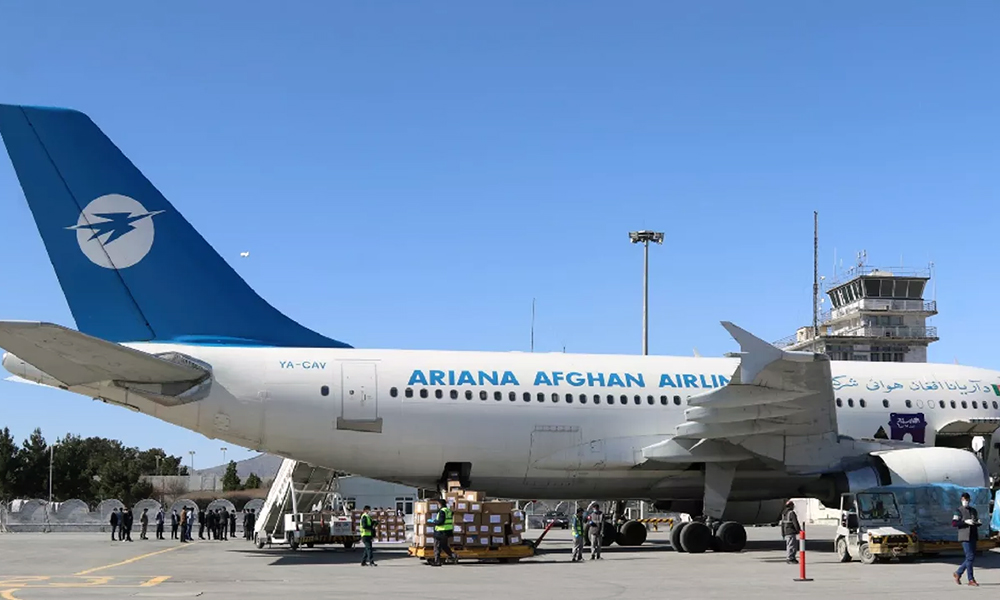
Ariana Afghan Airlines has announced a major development in the country’s air-transport sector, confirming that a long-awaited charter cargo aircraft has been officially contracted and will arrive in Afghanistan soon. The move is being hailed as a “significant and facilitative breakthrough” for national traders.
Bakht-ur-Rahman Sharafat, the head of Ariana Afghan Airlines, says the finalization of this contract reflects the leadership’s firm commitment to supporting Afghanistan’s growing trade sector. “This new cargo aircraft is part of Ariana’s broader plan to strengthen exports and provide fast, reliable, and competitive air-transport services for Afghan traders,” Sharafat stated.
According to Ariana officials, the addition of the new cargo aircraft will greatly enhance commercial air-transport services. It is expected to ensure timely delivery of goods, reduce transportation costs, and significantly increase the country’s export capacity.
Economic experts believe this step will not only offer substantial facilities to traders but will also play a key role in Afghanistan’s economic development and the expansion of its export markets.
Ariana’s leadership says the cargo aircraft will open new avenues for accelerating and securing the movement of both export and import goods, while fostering healthy competition within the nation’s aviation sector.
The Ariana Afghan Airlines press office says this achievement marks an important stride toward strengthening national trade and promoting Afghanistan’s path to economic self-reliance.
Business
IEA demands assurances from Islamabad before trade routes reopen
Mujahid noted that Afghanistan is currently meeting its essential import needs through a range of regional partners, and therefore will not rush to resume commerce with Pakistan without clear assurances.
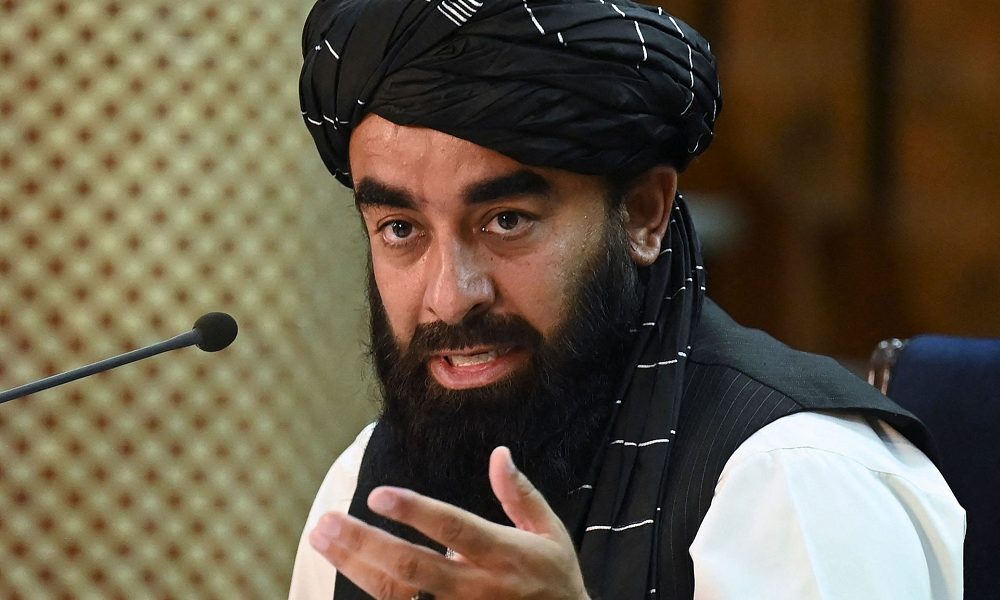
The Islamic Emirate of Afghanistan (IEA) has said that the reopening of trade and transit routes with Pakistan will depend on Islamabad providing firm guarantees that these corridors will not again be used as instruments of political pressure.
In a statement released on social media, IEA spokesperson Zabihullah Mujahid accused Pakistan of having “illegally and politically” closed key border routes in recent months, a move he said caused “serious harm to the people on both sides of the Durand Line.”
Mujahid noted that Afghanistan is currently meeting its essential import needs through a range of regional partners, and therefore will not rush to resume commerce with Pakistan without clear assurances.
He said the IEA wants trade to take place in a “dignified and mutually beneficial” manner and made clear that any reopening will require Islamabad to commit to keeping commercial corridors free from political interference.
“Trade routes with Pakistan will only be reopened once strong assurances are received from the Pakistani government,” he said, adding that the guarantees must ensure Pakistan cannot again weaponise transit access or disrupt legitimate trade.
According to the IEA, the priority is to safeguard traders’ rights, stabilise cross-border transit, and ensure that the economic needs of the population are not influenced by political disputes.
The IEA said any step toward reopening the routes must be built on mutual respect and a long-term commitment to cooperation.
Business
Ariana Airlines deepens cooperation with Turkish Airlines
Both sides agreed to form joint technical and operational teams to advance cooperation and strengthen the regional air transport network.

Ariana Afghan Airlines and Turkish Airlines have moved to strengthen their aviation partnership following a high-level meeting between Ariana CEO Bakht-ur-Rahman Sharafat and Turkish Airlines CEO Bilal Ekşi.
According to Ariana Afghan Airlines, the discussions centered on expanding air transport connectivity, improving passenger and cargo services, and increasing the exchange of technical and operational expertise between the two carriers.
Sharafat praised Turkish Airlines for its global reach and operational standards, noting that the airline’s experience could play a vital role in enhancing air travel, trade, and tourism between Afghanistan and Turkey.
Ekşi commended Ariana’s recent improvements and said Turkish Airlines would support capacity-building initiatives, including technical training, aircraft maintenance, and operational enhancement programs.
Both sides agreed to form joint technical and operational teams to advance cooperation and strengthen the regional air transport network. The move marks a significant step toward deeper aviation collaboration between the two countries.
-

 Sport5 days ago
Sport5 days agoAfghanistan U19 and India A U19 share tri-series trophy after final washed out
-

 International Sports3 days ago
International Sports3 days agoStar-studded squads set to ignite DP World ILT20 Season 4
-
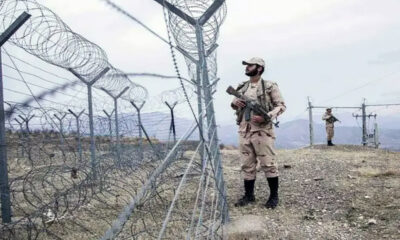
 Latest News3 days ago
Latest News3 days ago10 Afghans killed in Farah border shooting by Iranian forces
-

 Sport4 days ago
Sport4 days agoAfghanistan deepens ties with Uzbekistan through new cricket development partnership
-

 Business3 days ago
Business3 days agoAriana Airlines deepens cooperation with Turkish Airlines
-
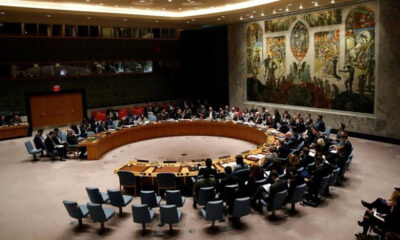
 Latest News3 days ago
Latest News3 days agoUN Security Council to review rising Afghanistan–Pakistan tensions
-

 Sport4 days ago
Sport4 days agoUAE Bulls clinch first Abu Dhabi T10 title with dominant 80-run victory
-
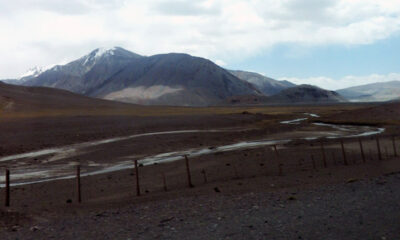
 Latest News3 days ago
Latest News3 days agoChina urges Tajikistan to protect citizens after border attack
















